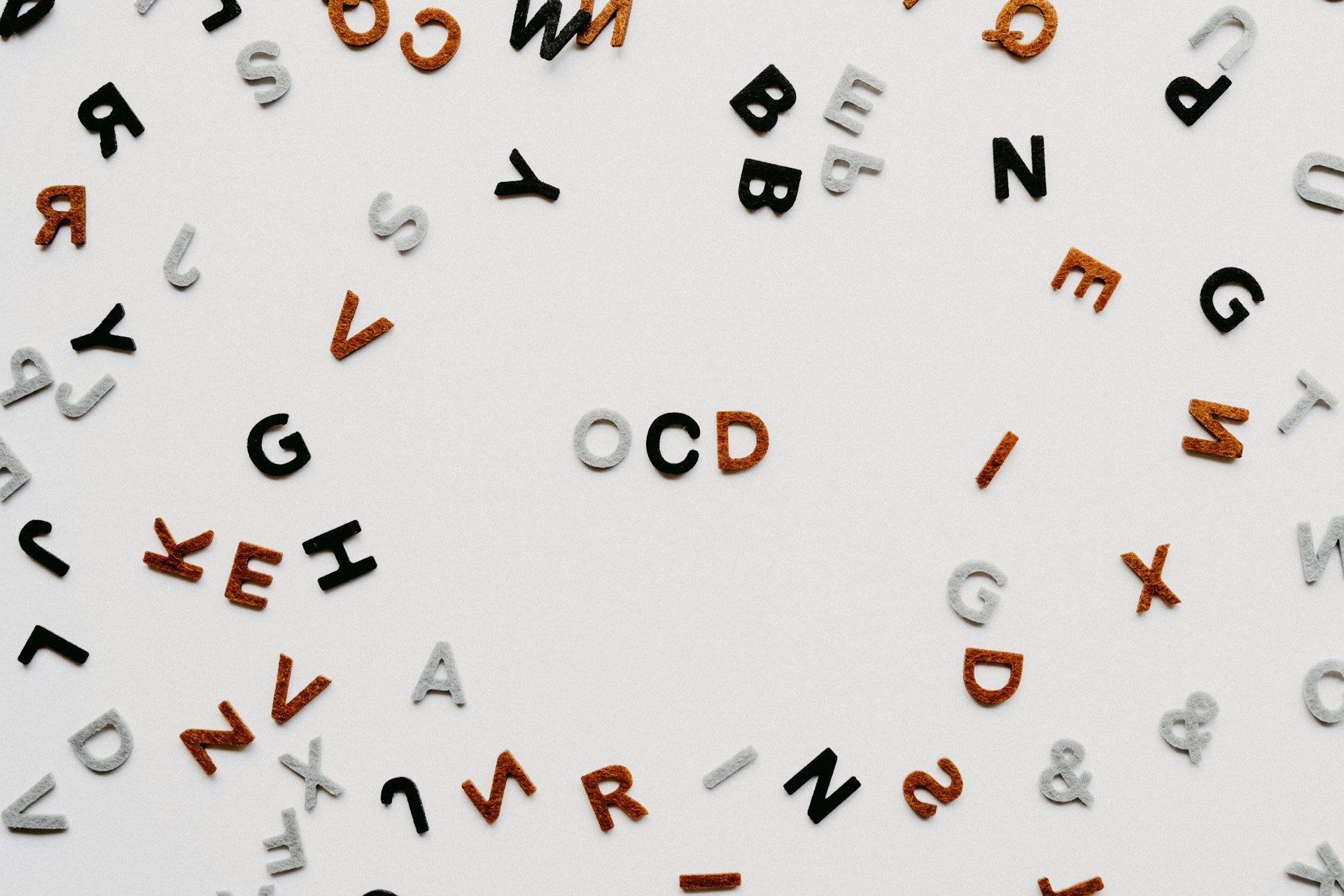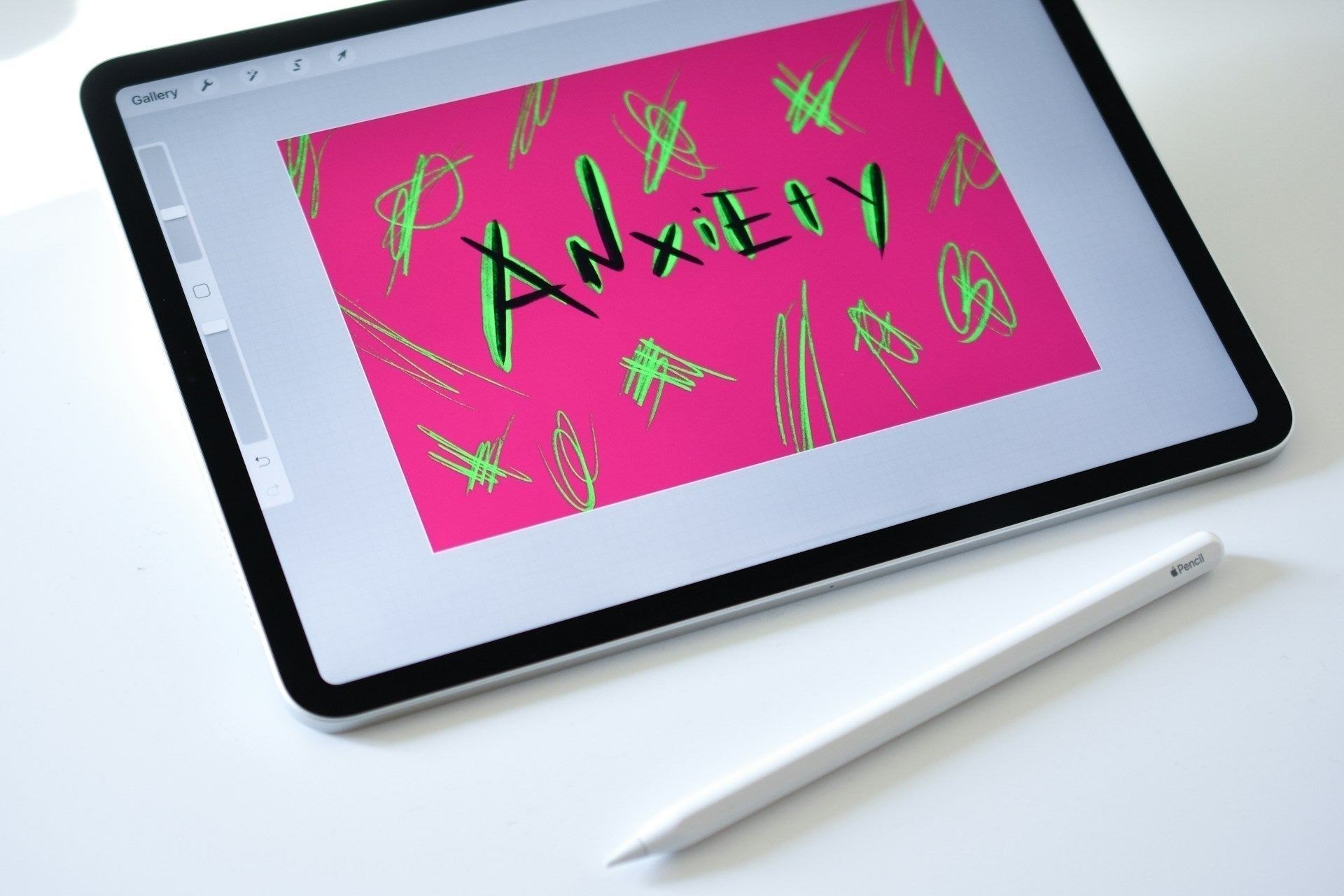 In This Article
In This ArticleIntroduction
Anxiety disorders are highly prevalent mental health issues that affect millions of people worldwide. Regardless of age, gender, or social background, anyone can develop an anxiety disorder. According to the World Health Organization (WHO), approximately 264 million people globally are affected by anxiety disorders, and this number is increasing every year.
Anxiety disorders are not just simple nervousness or stress; they are serious emotional disturbances that can significantly impact a person's daily life and functioning. Patients often experience persistent worry, fear, and extreme unease about the future. These symptoms can severely disrupt their work efficiency, social activities, and overall quality of life.
The impact of anxiety disorders on individuals and society is profound. For individuals, anxiety disorders can lead to severe physical and mental health problems such as insomnia, gastrointestinal issues, heart disease, and depression. Additionally, anxiety disorders can affect a person's career development, interpersonal relationships, and life satisfaction. At the societal level, the widespread presence of anxiety disorders adds to the burden on healthcare systems, affects economic productivity, and leads to the expenditure of significant social resources.
This article aims to delve into the definition, symptoms, and various healing methods of anxiety disorders, with a particular focus on introducing crystal healing as a potential complementary therapy. We hope to help readers better understand and cope with anxiety disorders.
Understanding Anxiety Disorders
Definition and Explanation of Anxiety Disorders
Anxiety disorder is a common mental health issue characterized by persistent and excessive worry and fear that are often not related to any specific situation or event. Unlike temporary feelings of nervousness or fear, an anxiety disorder is a chronic condition that can significantly impact a person's daily life and functioning. Individuals with anxiety disorders may feel extremely uneasy, unable to control their worry, and may experience anxiety even without any apparent reason.
Distinguishing them from normal stress and anxiety
Normal stress and anxiety are common emotional responses that can help individuals cope with challenges or threats. However, anxiety disorders are different; they involve persistent and unreasonable worry that extends beyond the normal range of stress responses. Typical anxiety is usually temporary and related to specific stressors, such as feeling nervous before an exam or experiencing work-related pressure. In contrast, individuals with anxiety disorders feel continuous tension and fear without obvious reasons, and this condition can last for months or even years, severely impacting their daily life and health.
Types of Anxiety Disorders
Anxiety disorders encompass various types, each with its specific symptoms and characteristics. Here are some common types of anxiety disorders:
-
Generalized Anxiety Disorder (GAD)
Individuals with GAD experience excessive worry and anxiety about various activities or events, often unable to control these worries. GAD is often accompanied by persistent tension, restlessness, and fatigue. -
Social Anxiety Disorder (SAD)
Also known as social phobia, individuals with SAD have an intense fear and discomfort in social or performance situations, fearing embarrassment or judgment by others. This anxiety leads to avoidance of social activities, impacting personal and professional life. -
Panic Disorder
Individuals with panic disorder experience recurrent unexpected panic attacks, which are sudden episodes of intense fear accompanied by physical symptoms like palpitations, sweating, and shortness of breath. Panic attacks often occur without a clear trigger, making the individual feel helpless and frightened. -
Other Types
These include specific phobias, separation anxiety disorder, and selective mutism, each with its unique symptoms and manifestations.
This comprehensive outline provides a clear understanding of what anxiety disorders are, how they differ from normal anxiety, and the various types of anxiety disorders, offering readers valuable insights into recognizing and addressing these conditions.
Symptoms of Anxiety Disorders
Common Physical Symptoms
Individuals with anxiety disorders often experience a variety of physical symptoms. These symptoms may include:
-
Palpitations
Feeling that the heart is racing or beating irregularly. -
Sweating
Excessive sweating even in cool environments. -
Trembling
Involuntary shaking of the body or limbs. -
Shortness of Breath
Feeling breathless or having difficulty breathing. -
Dizziness and Lightheadedness
Sudden feelings of dizziness or unsteadiness. -
Gastrointestinal Issues
Such as nausea, diarrhea, or stomach pain. -
Muscle Tension
Persistent muscle tightness and pain.
Psychological Symptoms
Psychological symptoms are central to anxiety disorders and typically include:
- Persistent Worry and Fear: Excessive worry about future events or situations.
- Difficulty Concentrating: Trouble maintaining focus at work or school.
- Irritability or Restlessness: Easily feeling agitated or angry.
- Sense of Impending Doom: A constant feeling that something bad is about to happen.
- Sleep Problems: Difficulty falling asleep, staying asleep, or waking up early.
- Overthinking: Repeatedly thinking about a problem or situation.
- Avoidance Behavior: Avoiding situations or places that cause anxiety.
Impact on daily functioning
The symptoms of anxiety disorders can severely impact an individual's daily life and overall functioning. This includes:
-
Decreased Work Efficiency
Difficulty concentrating and constant fatigue can affect job performance. -
Reduced Social Activities
Avoiding social interactions due to anxiety, leading to feelings of isolation and reduced social support. -
Academic Performance
Students may struggle to complete academic tasks due to anxiety. -
Strained Family Relationships
Ongoing anxiety can lead to tension and increased conflict among family members. -
Diminished Self-Care
Difficulty maintaining normal self-care behaviors, such as proper eating and hygiene, due to anxiety symptoms. - Worsening Physical and Mental Health
- Prolonged anxiety can lead to a weakened immune system and an increase in other health issues.
This detailed and comprehensive outline provides a thorough understanding of anxiety disorders, their symptoms, and their impact on daily life, catering to both English and Chinese-speaking readers.
Traditional and Modern Treatment Methods
Psychotherapy and pharmacotherapy
-
Psychotherapy
One of the most effective traditional treatments for anxiety disorders is psychotherapy, especially cognitive-behavioral therapy (CBT). CBT helps patients identify and challenge negative thought patterns and behaviors, teaching them coping strategies to manage their anxiety. Other forms of psychotherapy, such as exposure therapy, are also used to help individuals confront and reduce their anxiety triggers. -
Medication
Various medications are prescribed to manage anxiety disorders. Antidepressants, particularly selective serotonin reuptake inhibitors (SSRIs), are commonly used. Benzodiazepines may be prescribed for short-term relief of severe anxiety symptoms, although they carry a risk of dependence. Beta-blockers and other medications can also be part of an anxiety treatment plan.
Lifestyle and self-care
-
Exercise
Regular physical activity is a natural and effective way to combat anxiety. Exercise helps reduce stress hormones, boosts mood-enhancing chemicals like endorphins, and improves sleep quality. -
Diet
Maintaining a balanced diet can influence overall well-being and anxiety levels. Reducing caffeine and sugar intake, staying hydrated, and eating foods rich in omega-3 fatty acids, magnesium, and vitamins can help manage anxiety. -
Sleep
Good sleep hygiene is crucial. Establishing a regular sleep schedule, creating a restful environment, and avoiding screens before bedtime can improve sleep quality and reduce anxiety. -
Mindfulness and Relaxation Techniques
Practices like yoga, meditation, deep breathing exercises, and progressive muscle relaxation can significantly reduce anxiety symptoms by promoting relaxation and enhancing focus.
Digital applications and virtual reality
-
Digital Apps
There are numerous apps designed to help individuals manage anxiety. These apps can provide guided meditations, breathing exercises, mood tracking, and cognitive behavioral techniques. Apps like Headspace, Calm, and Moodpath are popular choices that offer a variety of tools for anxiety management. -
Virtual Reality (VR)
VR technology is being increasingly used in anxiety treatment. VR therapy can create controlled environments where individuals can confront their fears and anxiety triggers in a safe and gradual manner. This exposure therapy can be highly effective for conditions like social anxiety and phobias.
Alternative Healing Approaches
Exploring alternative therapies
Alternative therapies have gained popularity in managing anxiety disorders due to their holistic approach and minimal side effects. These therapies focus on the mind-body connection, promoting overall well-being. Some of the most effective alternative therapies include yoga, meditation, and acupuncture.
-
Yoga
Yoga combines physical postures, breathing exercises, and meditation to create a balanced state of mind and body. It helps reduce stress hormones, increases the production of endorphins, and enhances relaxation. Regular practice of yoga has been shown to decrease symptoms of anxiety and improve overall mental health. -
Meditation
Meditation practices, such as mindfulness meditation, involve focusing attention and eliminating the stream of thoughts that may crowd the mind. This practice promotes a sense of calm and balance, which can benefit emotional well-being and overall health. Studies have found that meditation can reduce symptoms of anxiety, enhance emotional health, and improve self-awareness. -
Acupuncture
Acupuncture, a traditional Chinese medicine practice, involves inserting thin needles into specific points on the body. This practice is believed to balance the body's energy flow, known as Qi, and promote natural healing. Acupuncture has been found to alleviate anxiety symptoms by regulating the nervous system and increasing the production of natural painkillers and mood enhancers.
Benefits of These Methods
-
Holistic Approach
These alternative therapies take a holistic approach to health, addressing the mind, body, and spirit. They can provide a sense of balance and well-being that supports traditional treatments. -
Reduction of Side Effects
Unlike some medications, alternative therapies often have fewer side effects. Practices like yoga and meditation can be safely incorporated into daily routines without the risk of adverse reactions. -
Complementary Nature
These methods can complement traditional treatments. For example, someone undergoing psychotherapy and taking medication for anxiety might find that yoga helps manage stress and improve overall treatment outcomes. -
Empowerment and Self-Care
Engaging in alternative therapies can empower individuals to take an active role in their health and well-being. Practices like meditation and yoga promote self-care, encouraging individuals to develop healthy habits that support long-term mental health.
How They Complement Traditional Treatments
-
Enhancing Effectiveness
Alternative therapies can enhance the effectiveness of traditional treatments by addressing additional aspects of well-being. For example, acupuncture might help alleviate physical symptoms of anxiety, while psychotherapy addresses underlying cognitive issues. -
Providing Coping Mechanisms
Practices such as yoga and meditation offer coping mechanisms that individuals can use outside of clinical settings. These skills can help manage anxiety symptoms in real-time and prevent them from escalating. -
Supporting Emotional Regulation
Techniques like mindfulness meditation help individuals develop better emotional regulation skills. This can reduce the frequency and intensity of anxiety episodes, making traditional therapies more effective.
This expanded section provides a comprehensive overview of alternative healing approaches for anxiety, highlighting their benefits and how they complement traditional treatments. The information is presented in a clear and structured manner, making it accessible and informative for readers.
The Role of Crystal Healing in Treating Anxiety Disorders
Introduction to crystal healing as an anxiety support therapy
Crystal healing is an alternative therapy that has been used for centuries to promote emotional and physical well-being. It involves the use of various crystals and gemstones, each believed to possess unique healing properties. While crystal healing should not replace traditional medical treatments for anxiety, it can serve as a complementary approach to enhance overall mental health. The calming and balancing energy of crystals can help individuals manage stress, reduce anxiety symptoms, and improve their emotional state.
How crystals affect energy and emotional health
Crystals are believed to work by interacting with the body's energy field, or aura. Each crystal has its own vibrational frequency that can influence our energy centers, known as chakras. When these energy centers are balanced, it can lead to improved emotional health and a greater sense of well-being. For example, Amethyst is known for its calming properties and can help alleviate stress and anxiety. Lapis Lazuli is believed to encourage self-awareness and self-expression, reducing feelings of anxiety. Black Tourmaline is often used to protect against negative energy and promote a sense of safety and security.
Popular crystals for treating anxiety and their effective uses
-
Properties: Known for its calming and soothing energy, Amethyst is often used to help with stress relief, insomnia, and emotional balance.
How to Use: Carry a small piece of Amethyst in your pocket, wear it as jewelry, or place it under your pillow to promote restful sleep and reduce anxiety. -
Lapis Lazuli
Properties: Lapis Lazuli is believed to enhance self-awareness, clarity, and communication, which can help reduce anxiety related to self-expression and social interactions.
How to Use:Wear Lapis Lazuli jewelry or meditate with a Lapis Lazuli stone to enhance your self-confidence and reduce social anxiety. -
Black Tourmaline
Properties: Known for its protective and grounding properties, Black Tourmaline can help shield against negative energy and promote a sense of safety and stability.
How to Use: Place Black Tourmaline around your home, carry a piece with you, or wear it as jewelry to protect against negative influences and ground your energy.
By incorporating these crystals into your daily routine, you can create a more balanced and peaceful environment that supports emotional well-being and helps manage anxiety symptoms. While crystals are not a cure-all, they can be a valuable tool in a holistic approach to mental health.
Incorporating Crystals into Anxiety Management
-
Create a Daily Routine
Incorporate crystal healing into your daily routine by setting aside time each day for meditation or mindfulness exercises with your chosen crystals. This can help you stay grounded and calm. -
Combine with Traditional Therapy
Use crystals alongside traditional treatments like psychotherapy and medication. For instance, holding a calming crystal during therapy sessions can enhance the sense of relaxation and openness. -
Crystal-Infused Water
Drink crystal-infused water by placing cleansed crystals like Amethyst or Rose Quartz in a water bottle overnight. This is believed to imbue the water with the crystals' healing properties. -
Placement Around Home and Work
Place crystals in areas where you spend a lot of time, such as your bedroom, living room, or office. Crystals like Black Tourmaline can help protect against negative energies, while Amethyst can promote a calm environment. -
Use in Self-Care Rituals
Integrate crystals into self-care practices such as baths, skincare routines, or yoga. For example, adding a few drops of crystal-infused oil to your bath can enhance relaxation.
Conclusion
Depression and its symptoms have a profound impact on individuals' lives, highlighting the importance of comprehensive management of anxiety disorders. Combining traditional treatment methods with alternative therapies, such as crystal healing, offers patients a variety of options to find the most suitable treatment plan. As a complementary therapy, crystal healing can help alleviate anxiety symptoms by balancing energy and emotions. Finally, it is essential to remind all readers to consult healthcare professionals when dealing with severe anxiety symptoms to ensure they receive the most appropriate treatment.





